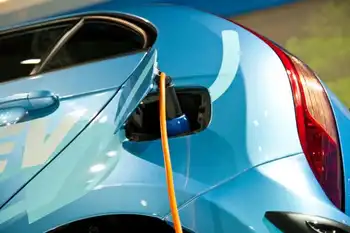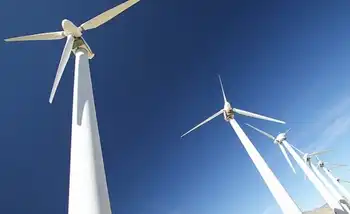World Bank Energy Policy debates financing for coal, oil, gas, and renewables to fight energy poverty, expand grid reliability, ensure baseload power, and balance climate goals with development finance for affordable, reliable electricity access.
Key Points
It outlines the bank's stance on financing fossil fuels and renewables to expand affordable, reliable electricity.
✅ Focus on energy access, baseload reliability, and poverty alleviation
✅ Debate over coal, gas, and renewables in development finance
✅ Geopolitics: China and Russia fill funding gaps, raising risks
Why isn’t the World Bank using all available energy resources in its global efforts to fight poverty? That’s the question I’ve asked World Bank President David Malpass. Nearly two years ago, the multilateral development bank decided to stop supporting critical coal, oil and gas projects that help people in developing countries escape poverty.
Along with 11 other senators, and as a member who votes on whether to give U.S. taxpayer dollars to the World Bank, I am pressing the bank to lift these restrictions. Developing countries desperately need access to a steady supply of affordable, reliable clean electricity to support economic growth.
The World Bank has pulled funding for critical electricity projects in poor countries, including high-efficiency power stations that are fueled by coal, even as efforts to revitalize coal communities with clean energy have grown.
Despite Kosovo having the world’s fifth-largest reserves of coal, the bank announced it would only support new energy projects from renewable sources going forward. Kosovo’s Minister of Economic Development Valdrin Lluka responded: “We don’t have the luxury to do such experiments in a poor country such as Kosovo. … It is in our national security interest to secure base energy inside our country.”
The World Bank’s misguided move comes as 840 million people worldwide are living without electricity, including 70 percent of sub-Saharan Africa, and as the fall in global energy investment may lead to shortages.
Even more troubling, nearly 3 billion people in developing countries rely on fuels like wood and other biomass for cooking and home heating, resulting in serious health problems and premature deaths, and the pandemic saw widespread electricity shut-offs that deepened energy insecurity. In 2016, household smoke killed an estimated 2.6 million people.
The World Bank’s mission is to lift people out of poverty. The bank is now compromising that mission in favor of a political agenda targeting certain energy sources.
With the World Bank blocking financing to affordable and reliable energy projects, Russia and China are stepping up their investments in order to gain geopolitical leverage.
President Vladimir Putin is pursuing Russian oil and gas projects in Mozambique, Gabon, and Angola. China’s Belt and Road Initiative is supporting traditional energy resources, with 36 percent of its power projects from 2014 to 2017 involving coal. South Africa had to turn to the China Development Bank to fund its $1.5 billion coal-fired power plant.
There are real risks for countries partnering with China and Russia on these projects. Developing countries are facing what some are calling China’s “debt trap” diplomacy. These nations have also raised concerns over safety compliance, unfair business practices, and labor standards.
As the bank’s largest contributor, the United States has a duty to make sure U.S. taxpayer dollars are used wisely and effectively. Every U.S. dollar at the World Bank should make a difference for people in the developing world.
My colleagues and I have asked the bank to pursue an all-of-the-above energy strategy as it strives to achieve its mission to end extreme poverty and promote shared prosperity. We will take the bank’s response into account during the congressional appropriations process.
The United States is a top global energy producer. And yet Democrats running for president are pursuing anti-energy policies that would hurt not only the United States but the entire world, with implications for U.S. national security as well.
Utilizing our abundant energy resources has fueled an American energy renaissance and a booming U.S. economy, even as disruptions in coal and nuclear have strained the grid, with millions of new jobs and higher wages.
People who are struggling to survive and thrive in developing countries deserve the same opportunity to access affordable and reliable sources of power.
As Microsoft founder and global philanthropist Bill Gates has noted of renewables: "Many people experiencing energy poverty live in areas without access to the kind of grids that are needed to make those technologies cheap and reliable enough to replace fossil fuels."
Ultimately, there is a role for all sources of energy to help countries alleviate poverty and improve the education, health and wellbeing of their people.
The solution to ending energy poverty does not lie in limiting options, but in using all available options. The World Bank must recommit to ending extreme poverty by helping countries use all of the world’s abundant energy resources. Let’s end energy poverty now.
Related News












